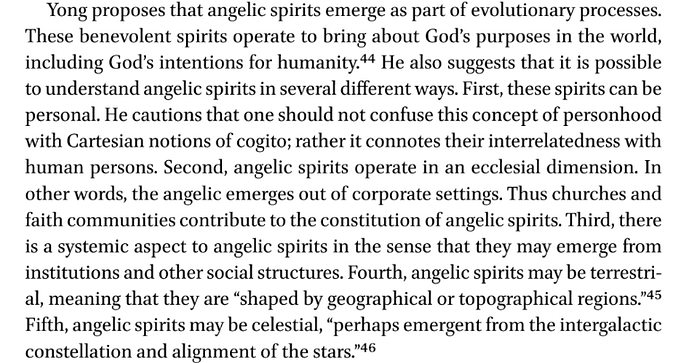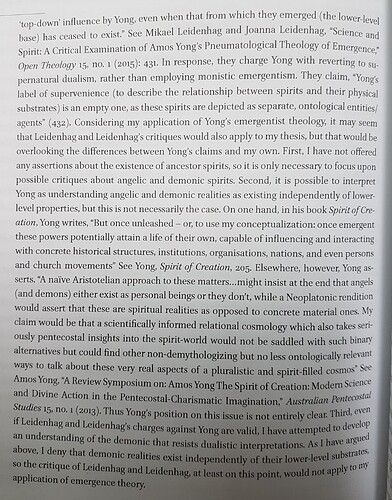Exactly!
So I do not deny the reality of devil and demons any more than I deny the reality of God and the angels.
But…
We only have an objective reality because of the laws of nature which care nothing about what we want or believe. I believe in the spiritual because life requires subjective participation, where you must impose what you want and believe on things. Thus I identify the spiritual with the subjective aspect of reality, where what you want and believe is its very essence.
So then God and the angels do not objectively exist?
There are no laws of nature forcing these to be a part of our experiences nor will there ever be. So how can they be said to objectively exist?
The point is that they CAN be a part of our experience if we want them to be and the advantages of this are fantastic. After all this includes eternal life.
Obviously if I think this is the case with God and the angels, then clearly I would think the devil and demons are subjective existences also. But why would we want these to be a part of our experience? In that case there is no advantage at all. And I think they are very much a product of bad habits of thought, beginning with Adam and Eve blaming the devil for their own mistakes. With blame goes responsibility and thus giving the devil power over them.
And THAT is my explanation for them. It is not to deny anybody’s experience of them at all – quite the contrary. On the other hand, we have every good reason to disbelieve in them if we can. And an understanding of reality which sees the phenomenon in the Bible attributed to demons as diseases of the body and mind, is very much a good idea – for then we affirm our own responsibility for ourselves and give no power to devil and demons over us.
I am not discounting the reality of God and demons by calling them subjective. Rather I am affirming the reality of the subjective. In fact, I would say that while we have good evidence for the existence of an objective reality, we have no evidence to support the idea that reality is exclusively objective. In other words, reality is not the same for everyone. There is only some overlap in these things we call objective. The pragmatic philosophical advantages of this way of thinking are tremendous.
Ah, but doesn’t saying God and the angels are subjective mean they are creations of human belief and imagination? And wouldn’t that contradict the Christian belief that God created everything? That is the usual way of thinking, but I do not believe so. To be sure, things which are the creation of human belief and imagination are subjective (at least to begin with). But that is not the only way in which things can be subjective. All it requires is for there to be no system of laws forcing them into a relationship with you irrespective of your belief and desire. And since the creator of the universe is not subject to any law outside of Himself, then He can be as subjective to us as He desires. All that I have seen and experienced tells me that God has chosen this to be so.




